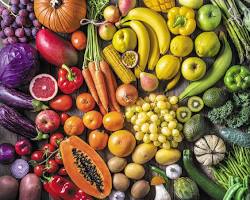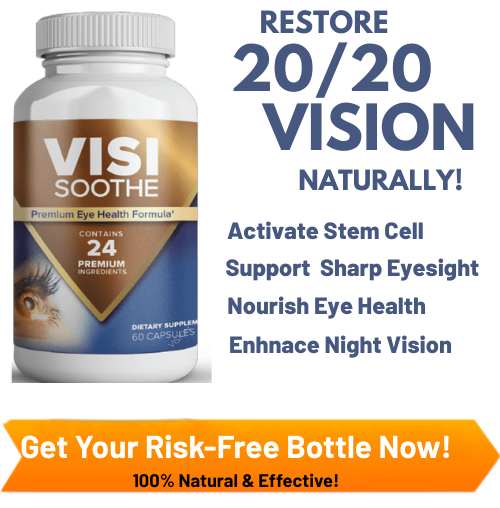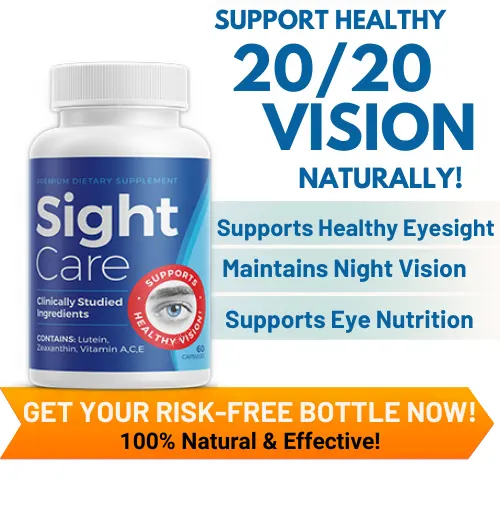Just as a healthy diet builds strong bones and muscles, the right foods are essential for building and protecting your eyesight for life. We often think about diet in terms of weight or heart health, but what you eat is one of the most critical factors in maintaining sharp, clear vision.
While no single food can magically correct refractive errors like nearsightedness, a diet rich in specific nutrients can protect your eyes from cellular damage, slow the progression of age-related diseases, and support their optimal function.
In this guide, we'll walk you through the top 15 foods proven to boost your vision health. We'll cover everything from the best foods that improve night vision to the key vitamins that form the basis of effective eye supplements.
The Core Nutrients Your Eyes Crave

Before we jump into the list, let's get familiar with the key players. These are the "MVP" nutrients for eye health, and you'll see them mentioned repeatedly.
- Vitamin A: Essential for maintaining a clear cornea. It's also a component of rhodopsin, the protein in your eyes that allows you to see in low-light conditions.
- Lutein & Zeaxanthin: Powerful antioxidants found in high concentrations in your macula. They act like internal sunglasses, helping to filter harmful high-energy blue light.
- Vitamin C: A powerful antioxidant that helps protect your eyes against damaging free radicals. It's also needed to make collagen, a protein that provides structure to your eyes, particularly in the cornea and sclera.
- Vitamin E: Another potent antioxidant that works to protect the cells in your eyes from damage. It works synergistically with lutein and zeaxanthin.
- Omega-3 Fatty Acids (DHA & EPA): These are crucial for retinal health and tear function. DHA is a major structural component of the retina itself.
- Zinc: A vital "helper molecule." It plays a key role in bringing Vitamin A from the liver to the retina in order to produce melanin, a protective pigment in the eyes.
Why People Believe It (The Grain of Truth): There is a physiological reason this feels like it's doing something. Exposing your skin to cold water causes vasoconstriction—the tightening of blood vessels. This can temporarily reduce puffiness, inflammation, and the feeling of tired, strained eyes. For a few moments, this refreshing sensation can be perceived as your vision becoming clearer or more alert.
The Top 15 Foods for Peak Vision Health

1. Carrots
- Key Nutrients: Beta-carotene (which the body converts to Vitamin A).
- How It Helps Your Eyes: Carrots are the classic vision-boosting food for a reason. The Vitamin A they provide is essential for producing rhodopsin, the pigment that is critical for seeing in low light. A deficiency in Vitamin A can lead to night blindness.
2. Leafy Greens (Spinach, Kale, Collards)
- Key Nutrients: Lutein, Zeaxanthin, Vitamin C.
- How It Helps Your Eyes: These greens are the single best natural source of lutein and zeaxanthin. These plant pigments help protect the macula from damage by blue light and oxidative stress, reducing the risk of chronic eye diseases like macular degeneration and cataracts.
3. Fatty Fish (Salmon, Tuna, Mackerel)
- Key Nutrients: Omega-3 Fatty Acids (DHA and EPA).
- How It Helps Your Eyes: The retina is composed of a high concentration of DHA. These fatty acids are crucial for retinal health and may help prevent macular degeneration. They also play a role in preventing dry eye syndrome by improving tear production.
4. Eggs
- Key Nutrients: Lutein, Zeaxanthin, Vitamin A, Zinc.
- How It Helps Your Eyes: Eggs are a true superfood for vision. The yolk contains an impressive amount of lutein, zeaxanthin, and zinc in a highly bioavailable form, making it easy for your body to use these nutrients to protect your macula.
5. Citrus Fruits (Oranges, Grapefruits, Lemons)
- Key Nutrients: Vitamin C.
- How It Helps Your Eyes: As a powerful antioxidant, Vitamin C contributes to healthy blood vessels in your eyes. It can help combat the development of cataracts and, when combined with other essential nutrients, can slow the progression of age-related macular degeneration.
6. Berries (Blueberries, Strawberries, Bilberries)
- Key Nutrients: Anthocyanins, Vitamin C.
- How It Helps Your Eyes: The deep, rich colors of these berries come from anthocyanins, potent antioxidants that reduce inflammation and are thought to improve blood flow to the retina. Bilberry, in particular, is famed for its connection to improving night vision.
7. Nuts & Seeds (Almonds, Walnuts, Chia Seeds)
- Key Nutrients: Omega-3s, Vitamin E.
- How It Helps Your Eyes: Almonds are rich in Vitamin E, while walnuts and chia seeds are packed with Omega-3s. This combination works to protect eye cells from oxidative stress and reduce inflammation.
8. Sweet Potatoes
- Key Nutrients: Beta-carotene (Vitamin A).
- How It Helps Your Eyes: Just like carrots, sweet potatoes are an excellent source of beta-carotene, providing the same benefits for night vision and overall eye health. Their bright orange flesh is a clear indicator of their nutrient power.
9. Bell Peppers
- Key Nutrients: Vitamin C, Vitamin A.
- How It Helps Your Eyes: Brightly colored bell peppers, especially the red and orange varieties, are one of the richest sources of Vitamin C per calorie. This helps in preventing cataracts and maintaining the health of blood vessels in the eye.
10. Lean Meats & Oysters
- Key Nutrients: Zinc.
- How It Helps Your Eyes: Zinc is essential for vision. It acts as a delivery truck, transporting Vitamin A from your liver to your retina. Oysters are the single best food source of zinc. Beef, turkey, and chicken are also excellent sources.
11. Broccoli & Brussels Sprouts
- Key Nutrients: Lutein, Zeaxanthin, Vitamin C, Vitamin E.
- How It Helps Your Eyes: These cruciferous vegetables offer a powerful combination of antioxidants. They provide the lutein and zeaxanthin needed for macular protection, along with the vitamins C and E that shield your eyes from free-radical damage.
12. Legumes (Lentils, Kidney Beans, Chickpeas)
- Key Nutrients: Zinc, Bioflavonoids.
- How It Helps Your Eyes: This food group is a great low-fat, high-fiber source of zinc and bioflavonoids, which appear to help protect the retina and may lower the risk for developing cataracts.
13. Avocado
- Key Nutrients: Lutein, Zeaxanthin, Vitamin E, Vitamin C.
- How It Helps Your Eyes: Avocados provide a solid source of the key antioxidants lutein and zeaxanthin. The healthy fats they contain also help your body absorb other fat-soluble nutrients (like Vitamin A) more effectively.
14. Corn
- Key Nutrients: Lutein, Zeaxanthin.
- How It Helps Your Eyes: Don't overlook yellow corn as a valuable source of eye-healthy nutrients. A 2019 study confirmed that corn is a rich source of lutein and zeaxanthin, making it another great food for protecting your macula.
15. Seeds (Sunflower, Flax)
- Key Nutrients: Vitamin E, Zinc, Omega-3s.
- How It Helps Your Eyes: Sunflower seeds are an excellent source of Vitamin E, a key antioxidant for eye health. Flax seeds provide a plant-based source of Omega-3s. They are an easy addition to salads, yogurt, or smoothies for a vision boost.
What About Eye Supplements? Pills to Help Vision

While a food-first approach is always best, high-quality supplements can help fill nutritional gaps. Many people search for pills to help restore 20/20 vision , and while no pill can reverse refractive errors, they can provide a concentrated dose of the nutrients we've discussed to protect and maintain the health you have.
The large-scale, scientific Age-Related Eye Disease Studies (AREDS/AREDS2) found that a specific combination of vitamins and minerals could reduce the risk of advanced macular degeneration. The most effective supplements are based on this research. Look for:
- Vitamins C and E
- Lutein and Zeaxanthin
- Zinc
- Copper (to prevent zinc-induced copper deficiency)
- Omega-3s (Fish Oil): Not in the AREDS2 formula but crucial for retinal health and managing dry eye.
- Herbs and Botanicals:
- Bilberry: Historically used by pilots to improve night vision, modern research suggests it supports circulation in the eye.
- Evening Primrose Oil: The benefits of this supplement are primarily tied to its high GLA (gamma-linolenic acid) content. GLA is an omega-6 fatty acid that can reduce inflammation, making it helpful for conditions like dry eye syndrome. It supports eye comfort rather than correcting vision itself.
Building a diet that protects your vision is about creating a colorful plate full of fruits, vegetables, and healthy fats. These foods provide the vitamins, minerals, and antioxidants that act as your eyes' internal defense system. While proper nutrition builds healthier eyes over time, if you're dealing with day-to-day eye strain, it's also helpful to know a few tricks to see clearer in the moment.
Eating these foods is a cornerstone of great eye health. They provide the fuel for clear daytime sight and sharp night vision. To learn how to combine this diet with other powerful habits, see our complete guide on getting your 20/20 vision back naturally.
Start today by adding one of these 15 foods to your next meal. Your eyes will thank you for it!

Disclaimer: The information presented in this blog post is intended for informational purposes only and should not be considered medical advice. While we strive to provide accurate and up-to-date information, it is not a substitute for professional medical guidance. Always consult with a qualified healthcare professional before making any decisions related to your health or treatment.
We strongly encourage you to seek the advice of a physician or other qualified healthcare provider with any questions you may have regarding a medical condition or treatment. Never disregard professional medical advice or delay seeking treatment because of something you have read in this blog post.
You Might Also Like


